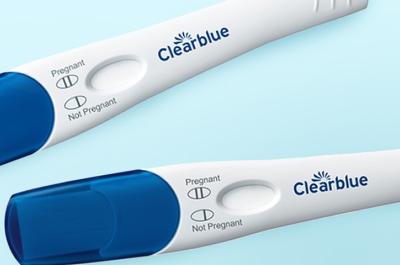Advocating for yourself at the doctor: What to do before, during and after

You’ve probably read many wellness articles telling you what to eat, how much to exercise, and what screenings to do and when. Yes, these things are important, but one of the most essential things you can do for your overall well-being is to advocate for yourself at your healthcare professional’s office.
What does it mean to advocate for yourself?
Advocating for yourself means recognizing your self-worth while clearly communicating your needs and desires. When it comes to your health, advocating for yourself includes regularly seeing a healthcare professional you like and trust, getting recommended screenings, staying in tune with your body, researching your symptoms, communicating effectively, following through and enlisting help as needed.
Why is advocating for yourself important?
Becoming an advocate for your health can help you get proper and prompt care. It can help ensure that you are listened to and that your concerns are addressed. And it can help guarantee that important topics including reproductive, sexual and gynecological health are an ever-present part of the conversation.
Advocating women’s health is especially important. Studies show that women’s pain is viewed as less intense and more psychologically based.1 A 2019 analysis published in Nature Communications found that 72% of women in Denmark wait longer for a diagnosis compared to men. And a 2019 study in the Journal of the American College of Cardiology stated that women receive significantly less timely treatments for heart disease compared to men.3
Additionally, in a 2021 issue of Obstetrics & Gynecology, national data was summarized for reproductive health measures, including contraceptive use, mammograms, Pap tests, maternal mortality and unintended pregnancies, and racial and ethnic disparities were found in every reproductive health category,4 making self-advocacy even more critical. In the U.S., significant racial and socioeconomic inequalities have been shown in studies among women specifically seeking fertility care.5,6
How to advocate for yourself at the doctor
Here are seven practical ways to be your own best advocate when it comes to your health.
1. Find a primary care provider and ob-gyn you like, and see them annually
It’s easy to get in the habit of only seeking help when you have a problem, like when your period is irregular or when you have a urinary tract infection. But it’s important to find a primary care provider and an ob-gyn you like and make an appointment with each of them every year. Not sure where to start? Often the best recommendations come from family members and friends. Just be sure to check with your insurance to make sure they’re in-network.
This 2021 infographic7 from The American College of Obstetricians & Gynecologists (ACOG) covers the many health-related topics an ob-gyn can discuss with you, including:
- General health maintenance
- Menstrual concerns
- Sexuality and healthy relationships
- Sexually transmitted infections
- Birth control
- Genetics
- Gynecological cancer screenings
- Vaccinations
- Mental health screening
- Healthy weight
- Infertility counseling
- Pre-pregnancy counseling
- Pregnancy care
- Urinary incontinence
- Perimenopause
- Menopause
Once you make a habit of visiting these healthcare professionals annually, they’ll have history, background and medical records to reference and compare. You can also build better rapports, which can lead to better understanding.
2. Get all recommended screenings.
Your healthcare professional will likely recommend certain screenings and may even send you texts, emails or postcard reminders. But ultimately, it’s up to you to make the appointments and get them done. Regular health screenings are one of the easiest ways to advocate for your own health. These screenings may include:
- Mammograms: According to ACOG, in the U.S., one in eight women will develop breast cancer by the time they are 75 years old.8 Your healthcare professional can help you determine how often you need a mammogram based on your age and risk. Regular breast screenings can help detect cancer earlier (and possibly at a more curable stage).8
- Pap smears : Many women no longer need to get a Pap smear every year. Per ACOG and the Centers for Disease Control and Prevention (CDC), if you’re 21 to 29 years old and your Pap smear result is normal, you may be able to wait three years until your next test.9,10 If you’re 30 to 65 years old, your healthcare professional will help you determine how long you need to wait until your next test.9,10
- Additional screening tests: Depending on your lifestyle, genetics and more, your healthcare professional may recommend additional screening tests, including a skin exam by a dermatologist, a colonoscopy and more.11
3. Stay in tune with your body.
Pay attention to your body and any changes you might be experiencing. And don’t rely on memory! Here are some tips for tuning in to your body:
- Keep a detailed diary. If you’re concerned about something, write it down. Note when your symptoms started, daily changes, things you’ve tried, etc.
- Track your period. Whether in the Notes section of your phone or in your planner, or a dedicated ‘menstrual cycle tracking’ app, keep track of when your cycle begins, how long your period lasts and how heavy it is.
- Put yourself first. Whether you’re swamped at work, you’re in the midst of exams or you’re caring for a newborn who isn’t sleeping, you have to make time for you. One of the most important elements of self-care is paying attention to your body when it’s trying to tell you something is wrong.
4. Research your symptoms.
Your healthcare professionals may be the experts, but you know your body best. Take what you know about yourself — your symptoms, what changes you’ve been experiencing — and think of “research” in broad terms. Research prior to an appointment can look like a lot of different things:
- Online research: Although a lot of misinformation exists online, there are many reliable websites directly related to women’s health (Hint: Look for sites ending in .org, .gov or .edu). Here are some to start your search:
- Centers for Disease Control and Prevention: Women’s Health
- The American College of Obstetricians & Gynecologists: For Patients
- MedlinePlus: Women
- The Office on Women’s Health
Also, many hospitals publish a wealth of online information for patients.
- Online forums: More than ever, people are sharing their personal health-related stories, about everything from fertility to cancer, in public and private forums. The #Conceivinghood campaign is an empowering example. Search for groups online and on social media sites to connect with those going through similar experiences. Although every person is different, it’s possible to glean information from someone further along in their journey and make notes of ideas and possibilities to discuss during your next healthcare professional visit. But be mindful that a lot of misinformation exists on forums, too. If you have concerns, contact your healthcare professional.
- Peer-reviewed articles: Don’t be intimidated to look up topics in peer-reviewed journals. Yes, some get science-y quite quickly, but the following tricks will help you get the info you need even if you don’t have a Ph.D.:
- Use dedicated sites for searching peer-reviewed journals, such as Google Scholar and PubMed Central.
- When reading a peer-reviewed article, pay attention to the beginning. Read the abstract, objective, results and conclusion. There you will likely find answers or, at least, topics to discuss at your next appointment.
- Don’t ignore the sources at the end of each peer-reviewed article, which will typically list several additional articles about the topic at hand.
5. Consider how to talk to your doctor to get the answers you need.
Many folks feel uncomfortable asking their healthcare professional questions about their own health. In case you need a pep talk, here goes:
- You are allowed to ask questions.
- You are not taking up too much of your healthcare professional’s time.
- Your questions are not silly or stupid.
- Your healthcare professional is not judging you.
- Your healthcare professional does not think you are a hypochondriac.
- If you feel as if your healthcare professional is rushing you, you are not obligated to skip or rush through your questions in return.
- If your healthcare professional is dismissive, you are allowed to ask the same question twice.
- If you don’t understand an answer, you are allowed to — and should — ask for a better explanation.
- If your healthcare professional has a patient portal (or a way to ask follow-up questions online), use it! You can always call the healthcare professional’s office with follow-up questions as well.
- You never have to apologize for your questions.
- If you don’t feel comfortable, you can go to another healthcare professional or seek a second opinion.
6. Follow through and persevere until the final diagnosis.
Consider second opinions. You won’t hurt anyone’s feelings, and in fact, many healthcare professionals not only expect it, but recommend it. When should you get a second opinion? Some healthcare professionals recommend seeking one when the diagnosis is cancer, when surgery is recommended, when the treatment or diagnosis is unclear or when you simply need it for peace of mind.12 Also, listen to your healthcare professional if they suggest a referral. If, for example, you’re having trouble with urinary incontinence and your ob-gyn refers you to urogynecologist, go.
7. Enlist help.
Self-advocacy doesn’t have to be done in isolation. Sometimes friends and family members may notice signs you initially miss. If you’re comfortable, find a partner to assist you, whether in noticing changes, helping you with research, scheduling appointments, accompanying you to the healthcare professional’s office and more. When you’re in the thick of something difficult and personal, it can be helpful to have someone who is a bit more removed assist you from time to time or, if necessary, ask a difficult question, insist on more information or advocate for you when you physically, emotionally or mentally cannot. If you’re pregnant, you can also hire advocates in the form of doulas or by using resources such as the National Association of Healthcare Advocacy.
Related Articles
Sources
- Zhang L, Reynolds Losin EA, Ashar YK, Koban L, Wager TD. Gender biases in estimation of others' pain. The journal of pain. 2021. doi: 10.1016/j.jpain.2021.03.001. Updated March 5, 2021. Accessed January 11, 2024. jpain.org/article/S1526-5900(21)00035-3/fulltext
- Westergaard D, Moseley P, Sørup F, Baldi P, Brunak S. Population-wide analysis of differences in disease progression patterns in men and women. Nat Commun. 2019;10(1):666. doi: 10.1038/s41467-019-08475-9. Updated February 8, 2019. Accessed January 11, 2024. https://www.nature.com/articles/s41467-019-08475-9
- Lee KK, Ferry AV, Anand A, Strachan FE, Chapman AR, Kimenai, DM, et al. Sex-specific thresholds of high-sensitivity troponin in patients with suspected acute coronary syndrome. J. Am. Coll. Cardiol. 2019;74(16):2032-2043. doi: 10.1016/j.jacc.2019.07.082. Accessed January 11, 2024. https://doi.org/10.1016/j.jacc.2019.07.082
- Sutton MY, Anachebe NF, Lee R, Skanes H. Racial and ethnic disparities in reproductive health services and outcomes. Obstet Gynecol. 2021;137(2):225-233. doi: 10.1097/AOG.0000000000004224. Accessed January 11, 2024. https://journals.lww.com/greenjournal/Fulltext/2021/02000/Racial_and_Ethnic_Disparities_in_Reproductive.5.aspx
- Galic I, Negris O, Warren C, Brown D, Bozen A, Jain T. Disparities in access to fertility care: who’s in and who’s out. F&S Reports. 2021;2(1):109-117. doi: 10.1016/j.xfre.2020.11.001. Accessed January 11, 2024. https://www.sciencedirect.com/science/article/pii/S2666334120301203
- Seifer DB, Simsek B, Wantman E, Kotlyar AM. Status of racial disparities between black and white women undergoing assisted reproductive technology in the US. Reprod Biol Endocrinol. 2020;18(1):113, doi: 10.1186/s12958-020-00662-4. Updated July 30, 2021. Accessed January 11, 2024. https://rbej.biomedcentral.com/articles/10.1186/s12958-020-00662-4
- The American College of Obstetricians & Gynecologists. Reasons to see your ob-gyn this year. Updated June 2021. Accessed January 11, 2024. https://www.acog.org/womens-health/infographics/reasons-to-see-your-ob-gyn-this-year
- The American College of Obstetricians & Gynecologists. Mammography and other screening tests for breast problems. Updated July 2022. Accessed January 11, 2024. https://www.acog.org/womens-health/faqs/mammography-and-other-screening-tests-for-breast-problems
- Mutch D. The American College of Obstetricians & Gynecologists. Why annual pap smears are history – but routine ob-gyn visits are not. Updated September 2022. Accessed January 11, 2024. https://www.acog.org/womens-health/experts-and-stories/the-latest/why-annual-pap-smears-are-history-but-routine-ob-gyn-visits-are-not
- Centers for Disease Control and Prevention. Cervical cancer: what should I know about screening? Updated August 21, 2023. Accessed January 11, 2024. https://www.cdc.gov/cancer/cervical/basic_info/screening.htm
- The American College of Obstetricians & Gynecologists. Reducing your risk of cancer: lifestyle changes and screening tests. Updated January 2023. Accessed January 11, 2024. https://www.acog.org/womens-health/faqs/reducing-your-risk-of-cancer-lifestyle-changes-and-screening-tests
- Katella K. Yale Medicine. Can a second opinion make a difference? Updated January 15, 2020. Accessed January 11, 2024. https://www.yalemedicine.org/news/second-opinions




